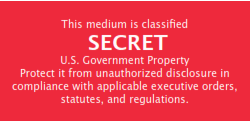

Program after program began flashing on a screen, he said, until he yelled “Stop!” in frustration. The other recounted that for his initial briefing, he was escorted into a tiny, dark room, seated at a small table and told he couldn’t take notes. “I’m not going to live long enough to be briefed on everything” was how one Super User put it. But as two of the Super Users indicated in interviews, there is simply no way they can keep up with the nation’s most sensitive work. In the Department of Defense, where more than two-thirds of the intelligence programs reside, only a handful of senior officials - called Super Users - have the ability to even know about all the department’s activities. “There has been so much growth since 9/11 that getting your arms around that - not just for the DNI (Director of National Intelligence), but for any individual, for the director of the CIA, for the secretary of defense - is a challenge,” Defense Secretary Robert Gates said in an interview with The Post last week.

They are also issues that greatly concern some of the people in charge of the nation’s security. These are not academic issues lack of focus, not lack of resources, was at the heart of the Fort Hood, Texas, shooting that left 13 dead, as well as the Christmas Day bomb attempt thwarted not by the thousands of analysts employed to find lone terrorists but by an alert airline passenger who saw smoke coming from his seatmate.

11, 2001, has become so large, so unwieldy and so secretive that no one knows how much money it costs, how many people it employs, how many programs exist within it or exactly how many agencies do the same work. The top-secret world the government created in response to the terrorist attacks of Sept. Digital Replica Edition Home Page Close MenuĪ note about this project follows the story


 0 kommentar(er)
0 kommentar(er)
